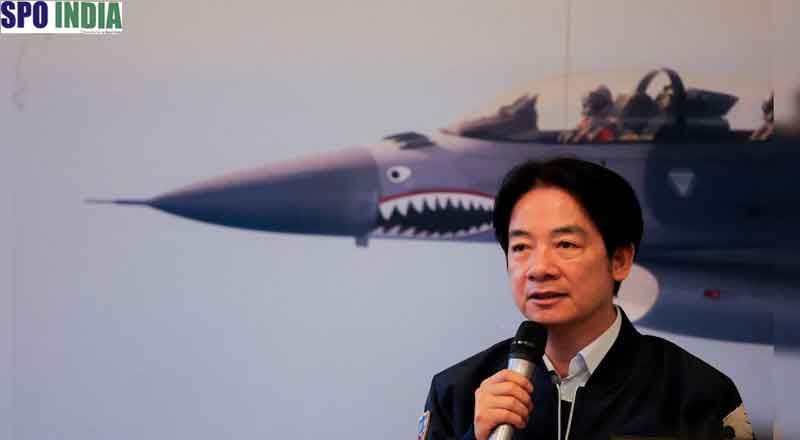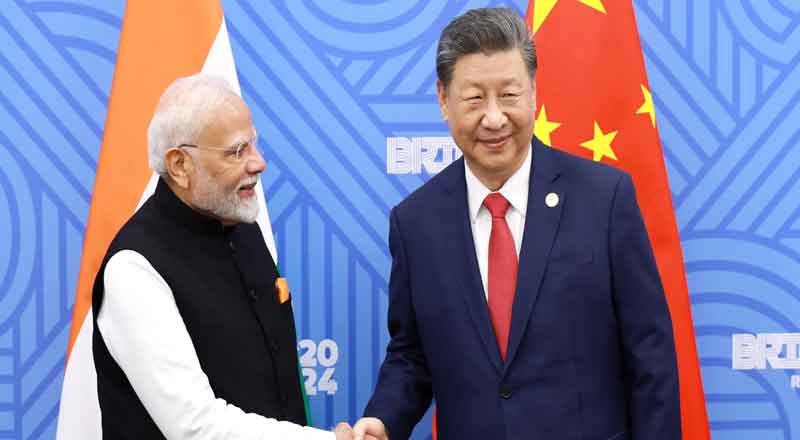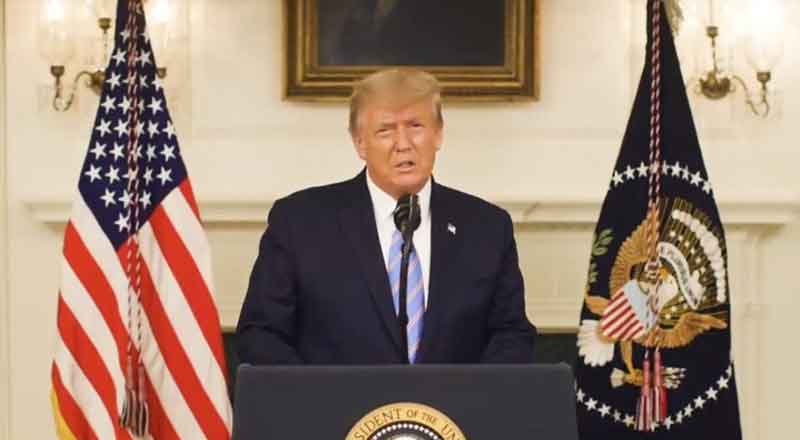- In a bold stance against escalating Chinese aggression, Taiwan’s President Lai Ching-te has denounced autocracy as the real “evil”.
- Beijing announced it could impose the death penalty on staunch supporters of Taiwanese independence.
- Addressing the recent threats at a press conference in Taipei, Lai expressed his condolences for the victims of recent flooding in southern China before condemning Beijing’s actions.
- Lai emphasized that China’s characterization of anyone not supporting reunification as an independence advocate was unjust.
- Taiwan recently reported a surge in Chinese military activity, with 115 aircraft detected near the island between Thursday and Sunday, some coming within 31 nautical miles (57 km) of Taiwan’s southern coast.
- Lai has consistently rejected China’s claims of sovereignty over Taiwan, asserting that only the Taiwanese people have the right to determine their future.
In a bold stance against escalating Chinese aggression, Taiwan’s President Lai Ching-te has denounced autocracy as the real “evil” after Beijing announced it could impose the death penalty on staunch supporters of Taiwanese independence. Lai’s remarks come in the wake of China’s unveiling of new legal measures designed to punish those advocating for Taiwan’s formal separation, despite having no jurisdiction over the democratically governed island.
Lai, who assumed office last month, has been a vocal advocate for Taiwan’s sovereignty, a stance that has drawn sharp rebuke from China, which views Taiwan as a breakaway province. Following his inauguration, China responded with military exercises, highlighting its intolerance for any moves toward Taiwanese independence.
Addressing the recent threats at a press conference in Taipei, Lai expressed his condolences for the victims of recent flooding in southern China before condemning Beijing’s actions. “I want to stress: democracy is not a crime; it’s autocracy that is the real evil,” Lai declared. “China has absolutely no right to sanction Taiwan’s people just because of the positions they hold. What’s more, China has no right to go after Taiwan people’s rights across borders.”
Lai emphasized that China’s characterization of anyone not supporting reunification as an independence advocate was unjust. He called on Beijing to recognize the legitimacy of the Republic of China, Taiwan’s official name, and engage in meaningful dialogue with its democratically elected government. “If this is not done, relations between Taiwan and China will only become more and more estranged,” Lai warned.
Taiwan has reported a significant uptick in Chinese military activity in recent days, with 115 aircraft detected operating near the island between Thursday and Sunday, approaching as close as 31 nautical miles (57 km) from Taiwan’s southern tip. This increased activity is part of what Taiwan describes as a “grey zone” pressure campaign by China, involving regular military maneuvers aimed at intimidating the island.
In response to the rising threat, Taiwan’s annual Han Kuang war games next month will focus on replicating actual combat scenarios as closely as possible, a senior official indicated. Lai has consistently rejected China’s claims of sovereignty over Taiwan, asserting that only the Taiwanese people have the right to determine their future. Despite his offers for dialogue, China has repeatedly dismissed the possibility of talks.
Beijing has maintained that any move by Taiwan towards formal independence would justify a military response. However, Taiwan’s government, which relocated to the island in 1949 following the civil war with Mao Zedong’s forces, insists that Taiwan is already an independent country, known as the Republic of China, and does not intend to alter this status.
Domestically, Lai is also facing political challenges. His Democratic Progressive Party (DPP) lost its parliamentary majority in the January elections that elevated him to the presidency. During the same press conference, Lai announced his intention to ask the constitutional court to review a contentious package of parliamentary reforms passed by the opposition. These reforms, which include measures to criminalize contempt of parliament by government officials, are viewed by the opposition as essential for ensuring accountability but criticized by the DPP for being rushed through without adequate discussion.
Lai’s assertive stance underscores the complexities and heightened tensions in cross-strait relations, as Taiwan continues to navigate the precarious path between asserting its democratic values and managing the ever-present threat from its powerful neighbor.
(With inputs from agencies)





